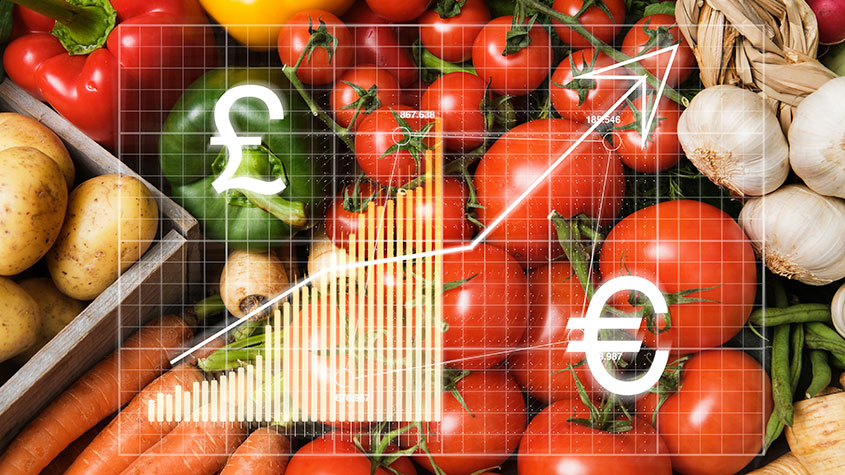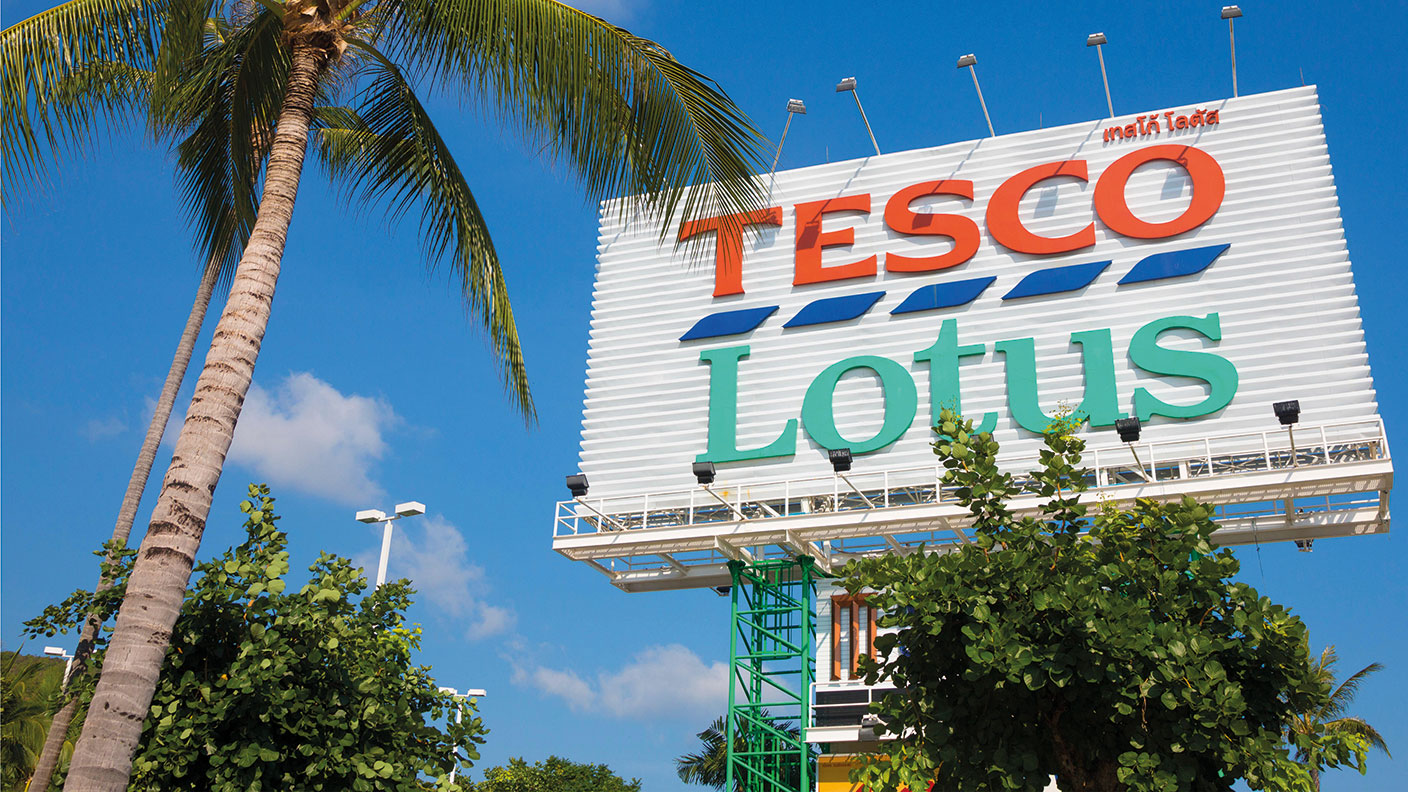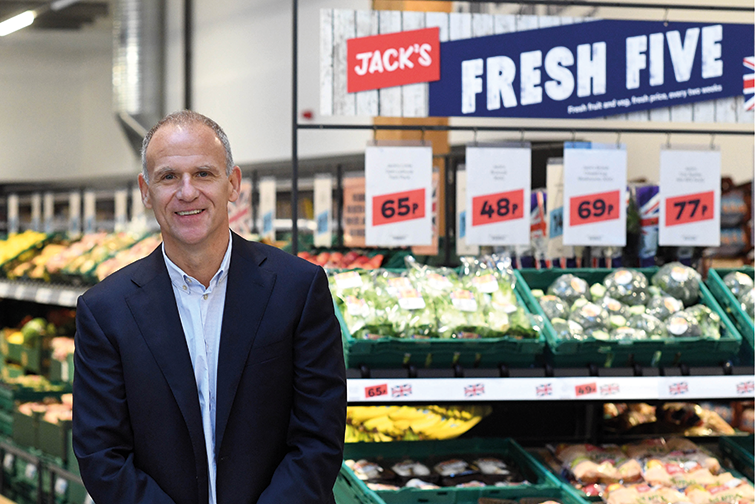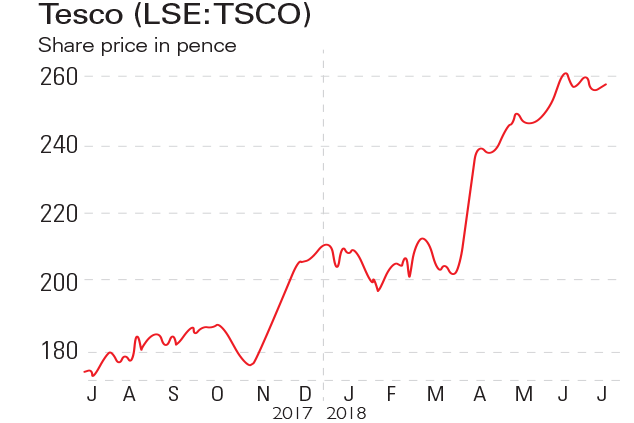Get the latest financial news, insights and expert analysis from our award-winning MoneyWeek team, to help you understand what really matters when it comes to your finances.
You are now subscribed
Your newsletter sign-up was successful
Want to add more newsletters?

Twice daily
MoneyWeek
Get the latest financial news, insights and expert analysis from our award-winning MoneyWeek team, to help you understand what really matters when it comes to your finances.

Four times a week
Look After My Bills
Sign up to our free money-saving newsletter, filled with the latest news and expert advice to help you find the best tips and deals for managing your bills. Start saving today!
Tesco announced a solid set of results this month. Exceptional costs relating to its pension deficit and the 2014 accounting scandal led to a big drop in pre-tax profits, but operating profits improved to £1.28bn, 30% higher than the year before.
Despite signs of progress, the supermarket's shares fell "to the bottom of the FTSE 100", says Daniel Grote on CityWire Money, as the planned £3.7bn takeover of food wholesaler Booker "continued to worry investors". Tesco chief executive Dave Lewis defended the takeover, saying that it "will bring together two complementary businesses, driving additional value for shareholders by realising substantial synergies".
However, the firm is under pressure from "two of its biggest shareholders", Schroders and Artisan Partners, to drop the deal, says Andrea Felsted on Bloomberg Gadfly. They would prefer Tesco to "focus on turning round its own business instead". Lewis needs to "convince investors suffering a crisis of confidence that integrating Booker won't derail what progress he has made".
MoneyWeek
Subscribe to MoneyWeek today and get your first six magazine issues absolutely FREE

Sign up to Money Morning
Don't miss the latest investment and personal finances news, market analysis, plus money-saving tips with our free twice-daily newsletter
Don't miss the latest investment and personal finances news, market analysis, plus money-saving tips with our free twice-daily newsletter
Quite right, says the FT's Lex column. "Recovery in the core business needs to be entrenched before embarking on such adventures." The "higgledy-piggledy trajectory" of Tesco's share price suggests "the market is still not convinced by its strategy". The improvement in its figures is "creaking along" but that's simply not good enough.
A masters of business administration (MBA) degree is "terrific at telling people how to make money quickly", says Alex Brummer in the Daily Mail. But it is hopeless at creating better capitalism, as shown by the way that "all manner of corporate ineptitude has come to light" recently. Barclays' CEO "found himself on the naughty step" over his pursuit of a whistle-blower. Lloyds Bank had to be "dragged kicking and screaming" to offer compensation to fraud victims. And then there were "the horrific scenes" from United Airlines (see page 31). All demonstrate the "cloth ears" of bosses who don't grasp "how bad decisions can go viral". In each case, "the simple phrase the customer is always right' would have served far better than an MBA".
A rumoured edict from Number Ten declares that "any company caught making negative remarks about Brexit will be frozen out of access to Downing Street", says Jim Armitage in the Evening Standard. So HSBC's decision to "stick its head above the parapet" will not go down well. Clients are asking for trades to go via Paris rather than London, the bank said, and firms are "looking to flip their headquarters from London to Europe" as the risk of a hard Brexit grows. "Pretty much every senior banker privately says the same," says Armitage. Theresa May must listen. Having the people who run the world's biggest financial institutions "cowed into silence surely helps nobody".
Anyone who's been in one of WH Smith's high-street shops might wonder how the firm stays in business. If only Stephen Clarke, WH Smith's chief executive, could herd customers in and "lock the doors behind them", life would be so much easier, says Kate Burgess in the Financial Times. After all, the strategy "works like a doozy" at its airport shops, where shoppers have "bigger worries than the price of a bottle of Evian water".
Get the latest financial news, insights and expert analysis from our award-winning MoneyWeek team, to help you understand what really matters when it comes to your finances.

-
 Three key winners from the AI boom and beyond
Three key winners from the AI boom and beyondJames Harries of the Trojan Global Income Fund picks three promising stocks that transcend the hype of the AI boom
-
 RTX Corporation is a strong player in a growth market
RTX Corporation is a strong player in a growth marketRTX Corporation’s order backlog means investors can look forward to years of rising profits
-
 How to profit from rising food prices: which stocks should you invest in?
How to profit from rising food prices: which stocks should you invest in?Tips Food prices are rising – we look at the stocks to avoid and the one to invest in this sector.
-
 Tesco looks well-placed to ride out the cost of living crisis – investors take note
Tesco looks well-placed to ride out the cost of living crisis – investors take noteAnalysis Surging inflation is bad news for retailers. But supermarket giant Tesco looks better placed to cope than most, says Rupert Hargreaves.
-
 Tesco sells its retail subsidiary in Thailand and Malaysia for £8bn
Tesco sells its retail subsidiary in Thailand and Malaysia for £8bnNews Tesco has agreed to sell its southeast Asian operations to Thai conglomerate Charoen Pokphand for £8.2bn in cash.
-
 Tesco should keep its Asian assets
Tesco should keep its Asian assetsOpinion The £7bn that Tesco could get for its Tesco Lotus business in Asia looks enticing. But holding on to it would be smarter, says Matthew Lynn.
-
 Tesco cashes out of the mortgage business
Tesco cashes out of the mortgage businessFeatures Tesco Bank has left the mortgage market by selling its £3.7bn loan book. Its 23,000 customers will be moved to the Halifax, a subsidiary of Lloyds.
-
 Tesco wields the axe
Tesco wields the axeFeatures Britain’s biggest supermarket is cutting back on staff and fresh food. Will the move prove counterproductive? Matthew Partridge reports.
-
 If you'd invested in: Tesco and Associated British Foods
If you'd invested in: Tesco and Associated British FoodsFeatures Tesco has seen its market value rise almost 50% in a year, while AB Foods has seen shares slide despite a rise in profits.
-
 What's behind Tesco’s alliance with Carrefour?
What's behind Tesco’s alliance with Carrefour?Features Tesco is clubbing together with French rival Carrefour to bulk buy own-label goods in an effort to cut costs. Will it succeed? Ben Judge reports.
